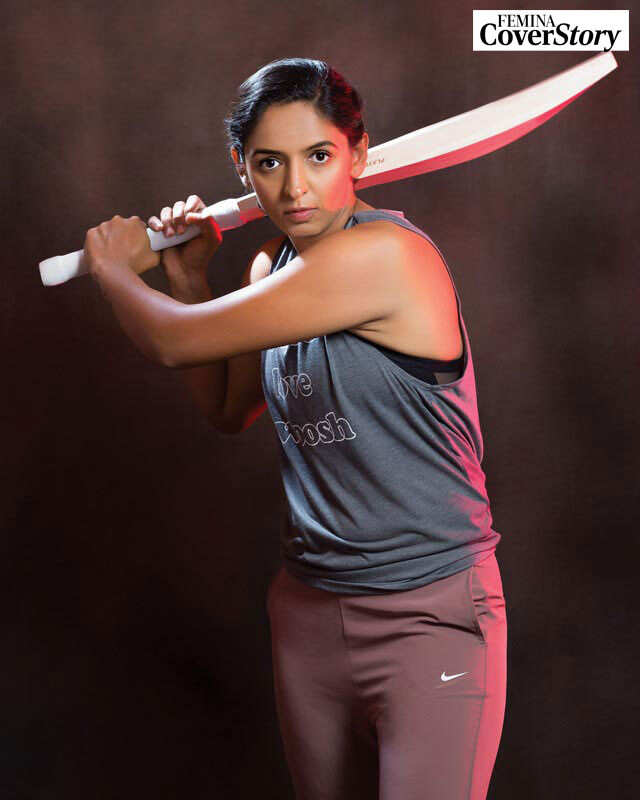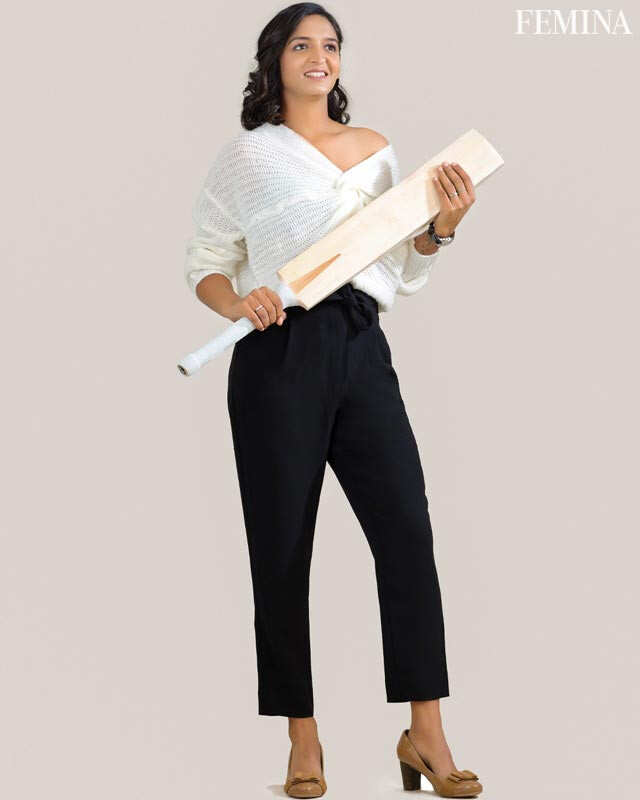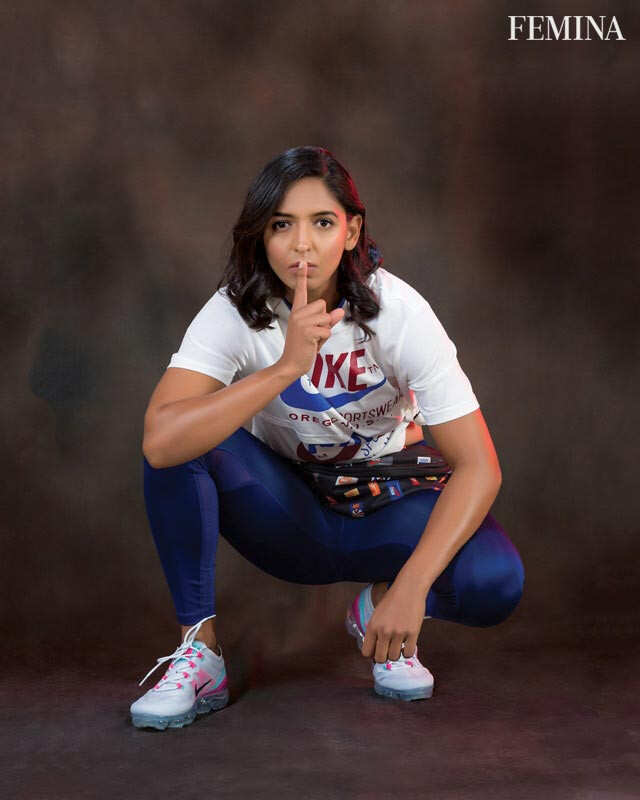
Hailing from Moga in Punjab, Harmanpreet Kaur had one goal since childhood. “Bachpan se ek hee thought tha ki cricketer hee banana hai; koi bhi doosra thought aya hee nahi kabhi!” (Since childhood, I was sure that I want to become a cricketer; I never thought of any other option), says the Indian women’s team captain for short-form cricket. Born to a sport-supportive family, she was never stopped by her parents to play. “My father was my first coach,” she tells, “he always believed in equality and never pulled me away from playing with the boys.”
Such was her drive towards the game though that she changed schools to ensure time and dedication to the game. She played other sports too, but “none could gather my interest”. So, the all-rounder joined the Gyan Jyoti School Academy to train professionally for her favourite, cricket, despite it being 30 km away.
“I didn’t know then whether women played professionally or not, as all I had seen on the television was men’s cricket,” recalls the dynamic cricketer. Breaking those barriers has been an uphill task for women cricketers, though times are changing. Kaur talks about how this imbalance is changing for the better, and her journey.
In October 2019, during the series against South Africa, you became the first cricketer for India, male or female, to play in 100 international T20 matches. How did you feel?
To be honest, I did not even know that I was playing my 100th T20 match that day till the time my team organised a meeting session before the game to surprise me with something special. All my teammates had created a music video for me showing love and appreciation. That moment was extremely emotional for me and I realised how much I loved and admired this journey along with the people who supported me throughout this time.
You’re the captain of the Indian team for short-form cricket. Does the position add pressure to your game, and how do you find a balance?
The role of a captain is to lead, support and become the most responsible person of the team. One major responsibility is to keep my team united and work towards the same goal. The position rarely adds pressure to my performance. Rather, it motivates me to always keep myself positive in tough situations. A lot relies on how you keep yourself calm even if the conditions are not favourable and keep motivating each other in the team to fight until the end.

You led the team to its very first T20 World Cup final earlier this year. While the outcome might not have been what was intended, what are the takeaways?
Coming that far and not bagging the trophy was disheartening. We were numb at one point in time. With time passing, I realised that we did come a long way with such a young team. That deserved appreciation and encouragement. I know we were a step away from creating history, but sometimes all you need to do is give it another chance. As the captain, I was proud of my team. We may have lost the title, but we carried several good memories back, which will help us grow in many ways.
Have you, owing to your gender, ever felt that you had to work harder to prove yourself at any stage?
I realised this at the beginning of my career that in order to get women’s cricket equivalent to men’s, we will have to work a lot harder and get people to watch our sport and appreciate it as much. Even as a child, when I thought of playing for the country, I thought that I would have to play with the boys! When I started my career at the age of 17, I was probably the only girl to play cricket in my town. I had to take all the initiative, go the whole mile myself.
While times are changing now, women sports teams—even in the country’s favourite sport, cricket—were not given their due credit for a long time. Why do you think the change is happening now?
Considering the current scenario, I feel positive about the changes in women’s cricket over the past few years. The comparison between both male and female sport was visible about a decade ago. The reasons, I feel, are that there was limited coverage when matches were not televised, the media hardly covered the sporting events, therefore people were not aware of women’s cricket. In the last few years, the team performance has gone up, which has added to the popularity and, I believe, in the coming years there will be no difference between men’s and women’s cricket.
How have you coped with the lockdown?
This time during the lockdown has been tough for me, and perhaps for all sportspersons across the globe! I have never experienced being indoors for this long and had no clue how one can survive! So taking all the preventive measures, I decided to keep myself physically and mentally fit at home. I tried various new workouts, learnt how to cook and do household work, and most importantly, I got to spend a lot of time with my family which I have not done in the last ten years. I am eagerly waiting to get back on the field.

What are your thoughts on the Women’s IPL being played at UAE this year?
This is the third edition of the women’s T20 challenge. I am looking forward to playing in a country where we have never played before. The wickets and the grounds will be an absolute surprise for us and I am already excited about being able to play good cricket.
What are your future plans, after the lockdown ends and games start soon?
To begin with a positive mind-set and take up big challenges. After a long break, there is a new essence and freshness in the way I feel about cricket.
What is your message for our young readers?
Always be inspiring! If you have inspired even one person then that means you have achieved something extremely commendable in life. This feeling is really satisfying knowing that there are people who look up to you. Always be independent, be a good person, be ready to do the hard work, stand up for yourself, never make excuses, be disciplined and do good deeds. These are life mantras that have helped me become positive and satisfied.
Photographs: Star Studios
Hair & Makeup: Headmasters Patiala
‘Support homegrown brands' is not a mere catchphrase anymore. It needs to be the intent behind every purchase we make today. The 2020 pandemic has given a major push to the already existing support local movement. As India celebrates 73 years of Independence, we have put together a special issue on ‘Vocal about Local’, which is in keeping with our government’s thought process of promoting local produce, local crafts and craftsmen. Download your free copy and join this initiative.
Next Story